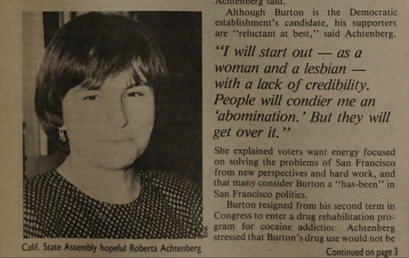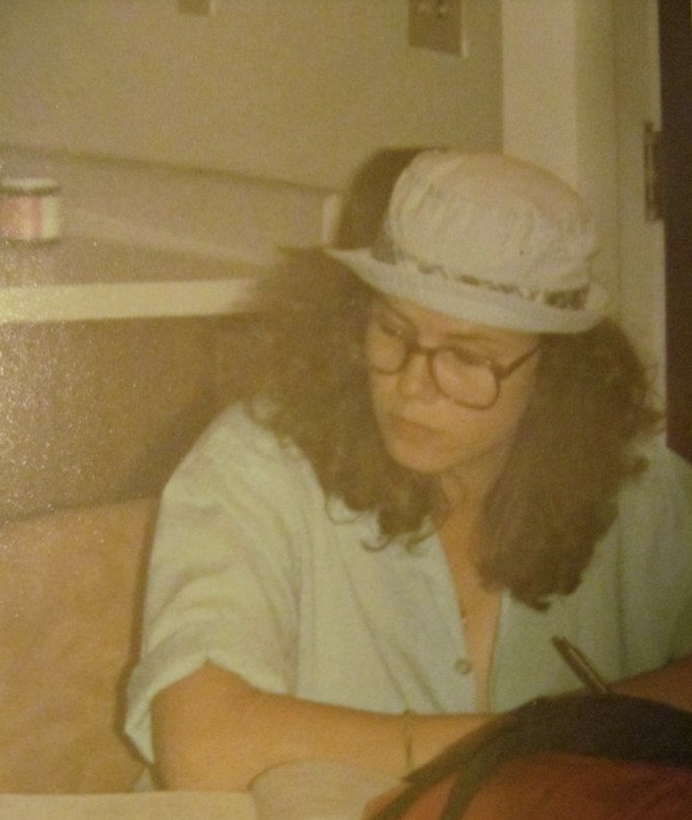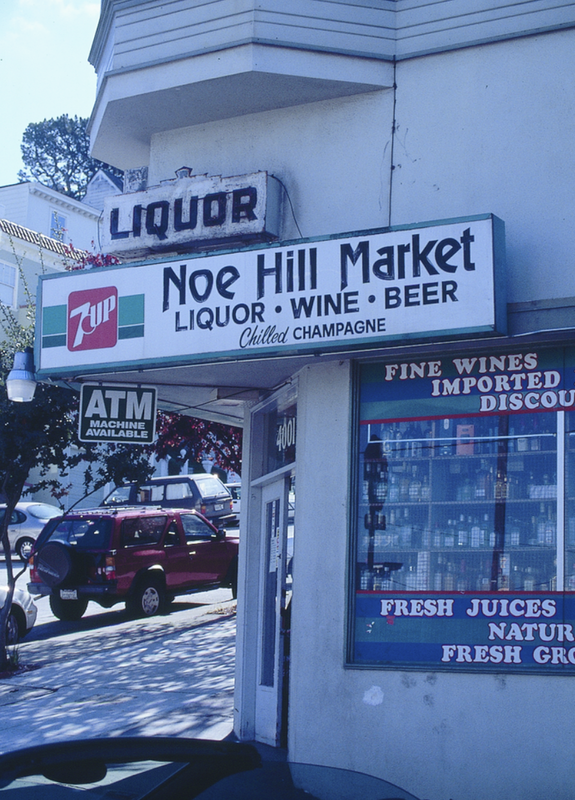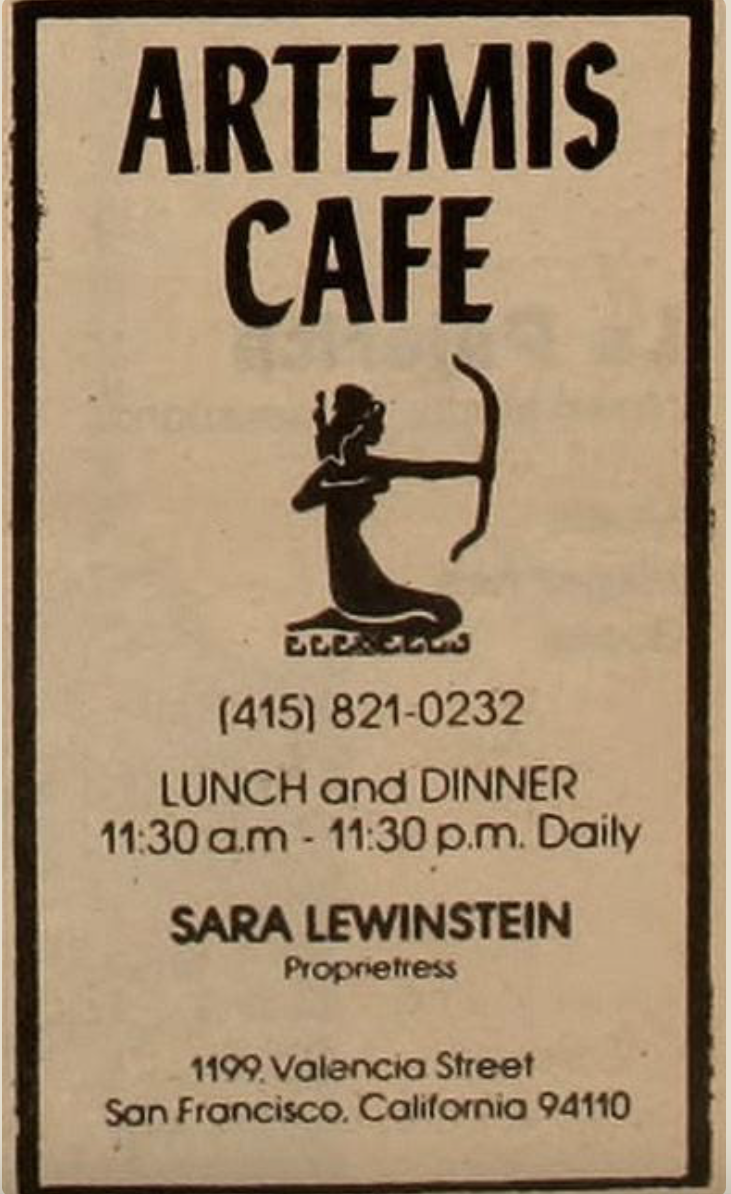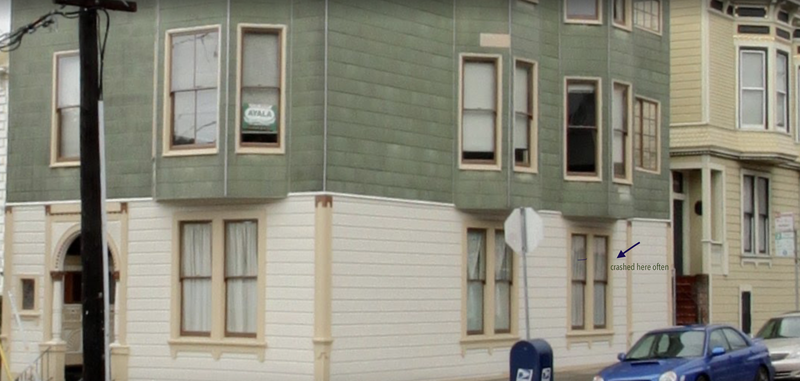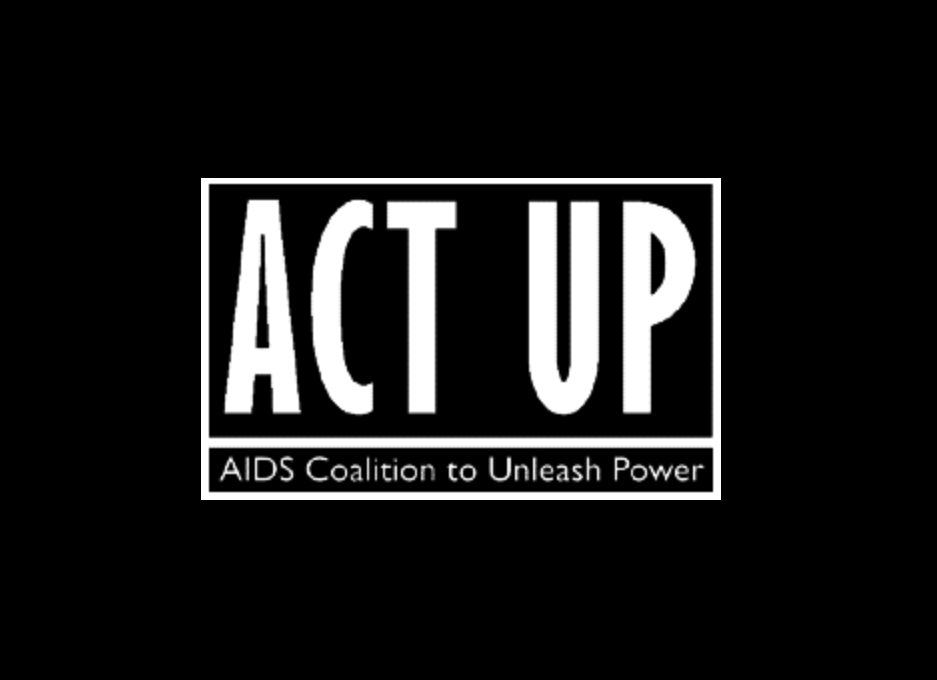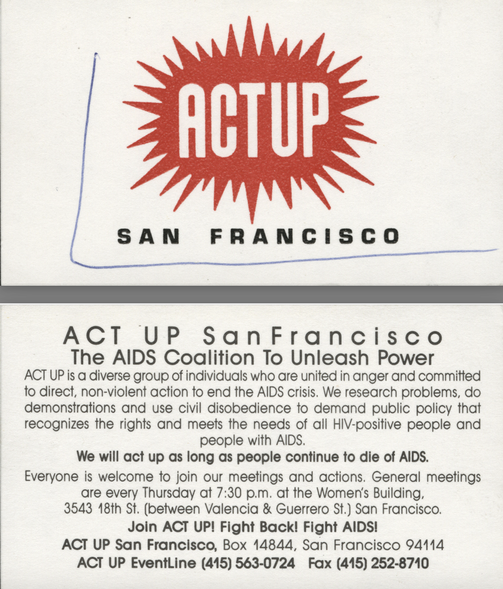[Use TTS to listen] 10 min
Why Being an Affirmative Therapist Matters to Me:
Social, Economic, and Health disparities among LGBTQIA people
by Kristin F Jones, LMFT (Personal Essay)
Why Being an Affirmative Therapist Matters to Me:
Social, Economic, and Health disparities among LGBTQIA people
by Kristin F Jones, LMFT (Personal Essay)
Coming Up and Coming Out
I was no stranger to the Streets
THE FIRST TETHERS
I bounced around San Francisco in the late 1980s while working on Roberta Achtenberg’s campaign for California State Assembly. I had just turned 27 and was somewhat shy and new to the city. I was also southern, closeted, and a college drop out who had quietly moved 3000 miles away without telling my educator parents that I had left the South.
My escape to the west coast occurred concurrently with living standards falling drastically in the US. The "lost decade" as the 1980s were called began with two recessions in three years. Each downturn, was due to misguided policy experiments that flattened compensation under the roly poly shifting from manufacturing jobs to service jobs, and soaring interest rates that ran up to 12%.
These conditions together supported sex discrimination and sexual harassment.
I bounced around San Francisco in the late 1980s while working on Roberta Achtenberg’s campaign for California State Assembly. I had just turned 27 and was somewhat shy and new to the city. I was also southern, closeted, and a college drop out who had quietly moved 3000 miles away without telling my educator parents that I had left the South.
My escape to the west coast occurred concurrently with living standards falling drastically in the US. The "lost decade" as the 1980s were called began with two recessions in three years. Each downturn, was due to misguided policy experiments that flattened compensation under the roly poly shifting from manufacturing jobs to service jobs, and soaring interest rates that ran up to 12%.
These conditions together supported sex discrimination and sexual harassment.
A SMALL INCISION
For the special election, Roberta Achtenberg’s finance committee had a total of four staffers. I was hired as one, not because I was good at math or numbers, but because my shyness somehow translated into reliable fundraising work. It enabled me to honestly connect with people in sincere ways because when you're in it, you can feel grassroots organizing begin to grow out of collective endangerment. Momentum gathers with what is yearned for.
In our daily work, we approached potential supporters who held mid to high positions in liberal organizations. This mobilization tapped an assortment of regional, state, and local individuals and we appealed to them to join us backing a lesbian candidate. Other days, after a dozen phone conversations with closeted businessmen and their protective secretaries, came a handful of planning meetings that were sure to follow. By cocktail hour and after, my specific job responsibilities situated me at bars and cafes or at formally hosted events, where I superintended fundraisers all over the city several nights a week and on weekends. These affairs were intended to court small donor-voters who had less expendable income, but who were parochially 'out.'
During functions, we spoke with attendees about gay and lesbian parental rights and how this directly involved tenant's rights, domestic violence shelters, and even wheelchair access specific to lesbians and gays-- unheard of before this. Conversations tactically explored ways to work down costs for the life saving drug AZT, the first antiretroviral medication for treating people with AIDS that had been approved the year before by the FDA, at a cost to the dying of $10,000 a year, in 1988 (the equivalent of $25,953 today). These fundraisers became fertile ground for questions and insights about AIDS research legislation, along with demands to procure rights for gays and lesbians in the military and for those teaching in the classroom.
Throughout the course, I was profoundly developing in personal ways, all within a cultural movement that required more of me. Most of me, in fact. I had to be seen and, at times, received derision and contempt from some who expressed disgust and disinterest towards anything remotely gay. While canvassing or doing Get Out the Vote (GOTV) work, I began to notice subtle changes in myself that forecast a felt sense of agency, that only the experience of access and resemblance can give rise to in any of us.
GLB people as we were beginning to be called then, needed a voice especially since the murder of Harvey Milk just nine years prior. We each carried an indescribable longing lodged in our bones that was mournful, as we worked towards new leadership. We were all here, responding and reacting in real time to so much pain. So much need. With that in mind every vote counted, but there was one sticking point with many gays that was insurmountable, Roberta was female.
Sexism and misogyny were still fervently in place at the time, even in the underground.
Roberta was (and still is!) a progressive Democrat. She was also the first openly gay woman to run for office in California and that translated into the campaign having far less funding (roughly 90%) than the opponent, John Burton, who was male, straight, and an established San Francisco Democrat.
We lost this election, but made a noticeable impact for gay and lesbian visibility. Five years later, in 1993, Roberta became the first openly gay person in the US to be appointed (by President Clinton) and to be confirmed by the Senate for a cabinet position, Assistant Secretary at the Office of Fair Housing and Equal Opportunity. In 2011, President Obama would appoint her as ‘Commissioner,’ overseeing the U.S. Commission on Civil Rights.
Each step, brought L.G.B.T. into the American lexicon and political, literary, philosophical and academic canon of the late 20th century.
For the special election, Roberta Achtenberg’s finance committee had a total of four staffers. I was hired as one, not because I was good at math or numbers, but because my shyness somehow translated into reliable fundraising work. It enabled me to honestly connect with people in sincere ways because when you're in it, you can feel grassroots organizing begin to grow out of collective endangerment. Momentum gathers with what is yearned for.
In our daily work, we approached potential supporters who held mid to high positions in liberal organizations. This mobilization tapped an assortment of regional, state, and local individuals and we appealed to them to join us backing a lesbian candidate. Other days, after a dozen phone conversations with closeted businessmen and their protective secretaries, came a handful of planning meetings that were sure to follow. By cocktail hour and after, my specific job responsibilities situated me at bars and cafes or at formally hosted events, where I superintended fundraisers all over the city several nights a week and on weekends. These affairs were intended to court small donor-voters who had less expendable income, but who were parochially 'out.'
During functions, we spoke with attendees about gay and lesbian parental rights and how this directly involved tenant's rights, domestic violence shelters, and even wheelchair access specific to lesbians and gays-- unheard of before this. Conversations tactically explored ways to work down costs for the life saving drug AZT, the first antiretroviral medication for treating people with AIDS that had been approved the year before by the FDA, at a cost to the dying of $10,000 a year, in 1988 (the equivalent of $25,953 today). These fundraisers became fertile ground for questions and insights about AIDS research legislation, along with demands to procure rights for gays and lesbians in the military and for those teaching in the classroom.
Throughout the course, I was profoundly developing in personal ways, all within a cultural movement that required more of me. Most of me, in fact. I had to be seen and, at times, received derision and contempt from some who expressed disgust and disinterest towards anything remotely gay. While canvassing or doing Get Out the Vote (GOTV) work, I began to notice subtle changes in myself that forecast a felt sense of agency, that only the experience of access and resemblance can give rise to in any of us.
GLB people as we were beginning to be called then, needed a voice especially since the murder of Harvey Milk just nine years prior. We each carried an indescribable longing lodged in our bones that was mournful, as we worked towards new leadership. We were all here, responding and reacting in real time to so much pain. So much need. With that in mind every vote counted, but there was one sticking point with many gays that was insurmountable, Roberta was female.
Sexism and misogyny were still fervently in place at the time, even in the underground.
Roberta was (and still is!) a progressive Democrat. She was also the first openly gay woman to run for office in California and that translated into the campaign having far less funding (roughly 90%) than the opponent, John Burton, who was male, straight, and an established San Francisco Democrat.
We lost this election, but made a noticeable impact for gay and lesbian visibility. Five years later, in 1993, Roberta became the first openly gay person in the US to be appointed (by President Clinton) and to be confirmed by the Senate for a cabinet position, Assistant Secretary at the Office of Fair Housing and Equal Opportunity. In 2011, President Obama would appoint her as ‘Commissioner,’ overseeing the U.S. Commission on Civil Rights.
Each step, brought L.G.B.T. into the American lexicon and political, literary, philosophical and academic canon of the late 20th century.
YELLOW YELLOW YELLOW AND CREAM
History making is personally meaningful, however, it doesn't pay very well, so I supplemented my income working as a cook and waiter at Artemis Cafe on Valencia Street in the Mission district. Like so many things in those days, the job showed up when I most needed it. One afternoon, I went there to have a beer and fell into a conversation with the only person working behind the counter in the empty lesbian establishment. Amid traffic noise, the entirety of Morrissey's Viva Hate, and flipping through a copy of On Our Backs, we had the conversation spoken everywhere and every day of the week. You see, by the late '80s there was always someone you personally knew, or who knew someone that was dealing with, or dying of AIDS. It was ubiquitous. It shaped and influenced every aspect of our daily lives, friendships, and the causes we came to be known for (pride). At the end of the impromptu discussion, the beer was on the house and I gratefully accepted a much needed job offer that the manager Emily pulled out of the air. It paid the national standard $3.35 an hour plus tips. I carried the generosity and loneliness back out into the city.
I SING OF YOU
After seven months living and working in San Francisco, I was still homeless. I'd run out of places to crash because gay, lesbian, bi, and trans as a ‘community’ didn't exist. It was being born, then and there. Combined, my pay from two jobs totaled less than the cost of rent for a small place and the election was fast upon us, which meant I'd soon be living off the part-time job at Artemis.
Jody, my friend and sometimes lover who I met back at school, moved to the city. Together, we clinched a makeshift bedroom on Howard Street, South of Market, in a cramped and busted apartment brimming with stray cats, addicts, arguments and physical fighting among the rotating door of unhoused lesbians. Deciding the city at large was safer than this place, we went to the Western Addition and crashed in someone's one room studio that someone else knew. We stayed there for what remained the rest of the month, as the tenant had gone on a trip to Europe. Jody and I and two other women from the campaign crashed there together; one was lesbian and the other bisexual. With time running out, I asked around everywhere and mercifully heard about a small one bedroom flat above a liquor store directly across the street from one of my former crash pads. It was located at 19th and Noe in the Castro.
Elated to finally land a place with 'family,' I put aside every dime of tip money each month to have enough to pay most of my rent. I bargained, bartered and negotiated the rest with my growing family of choice: a new girl friend at New College, the gay sisterhood at the cafe, lovers of lovers, and my campaign littermates: The Judys and Doloreses
-
Besides an impossible economy; sexism, harassment, and the unGodly suffering of friends with AIDS; it was also a time of hardship for any of us who were queer, because in the 1980s if you were known to be gay, you would lose your job and possibly be imprisoned. You were considered a pervert or sick or better yet, a criminal, if not down right immoral.
MINISTER THE MARGINS THAT ARE US
Being the immoral people that we were, we helped out one another with getting food, transportation, making rent, having clothes to wear, and locating basic necessities. During 1988, there were nearly 83,000 cases of AIDS with half being fatal and no cure in sight. Tour buses would drive through the Castro carting loads of preordained passengers who had come to see homosexuals. You’d think with all the challenges that we were juggling, we would try to blend. But too much erasure, too much ostracism, and too much denial from a country that lacked care or any form of response began to make us seethe. The terror of being outed and the dire consequences that came with it, suddenly paled in comparison to the gross negligence being cast over the queer and the dying. Again, there was always someone you personally knew, or who knew someone that was dealing with, or dying of AIDS.
SEEKERS OCCUPY
Tour buses continued to rumble down Market onto Castro Street and then roll along 18th past the dingy bars and Wash and Dry Mat where we cleaned our clothes. Riders would shift their gaze exacting the view; lampooning us; studying us. At the time, the moral majority portrayed gay and lesbian rights, abortion rights, and feminism with its Equal Rights Amendment as a direct attack on the traditional values of American families. They were half right, not about attack, but that gays and lesbians wanted -privacy rights- regarding sexual practices, varieties of coupling, and gender presentation to be accepted by this country.
We were catalogued as societal moral decay, while all forms of discrimination, shunning, and the withholding of basic human rights were sold as 'pro family.'
LITHE AS A DEER
When out doing errands, walking to the train, or heading back to our flat; slowly, we began to look directly at them, too. With all eyes locked, we pawed one another, kissed one another, and seductively coaxed one another against garage doors, under lamp posts, and beside pay phones. For too long, the nation had turned its back and gagged. It was time to confront injustice directly. It was time to ACT UP.
MINISTER THE MARGINS THAT ARE US
Being the immoral people that we were, we helped out one another with getting food, transportation, making rent, having clothes to wear, and locating basic necessities. During 1988, there were nearly 83,000 cases of AIDS with half being fatal and no cure in sight. Tour buses would drive through the Castro carting loads of preordained passengers who had come to see homosexuals. You’d think with all the challenges that we were juggling, we would try to blend. But too much erasure, too much ostracism, and too much denial from a country that lacked care or any form of response began to make us seethe. The terror of being outed and the dire consequences that came with it, suddenly paled in comparison to the gross negligence being cast over the queer and the dying. Again, there was always someone you personally knew, or who knew someone that was dealing with, or dying of AIDS.
SEEKERS OCCUPY
Tour buses continued to rumble down Market onto Castro Street and then roll along 18th past the dingy bars and Wash and Dry Mat where we cleaned our clothes. Riders would shift their gaze exacting the view; lampooning us; studying us. At the time, the moral majority portrayed gay and lesbian rights, abortion rights, and feminism with its Equal Rights Amendment as a direct attack on the traditional values of American families. They were half right, not about attack, but that gays and lesbians wanted -privacy rights- regarding sexual practices, varieties of coupling, and gender presentation to be accepted by this country.
We were catalogued as societal moral decay, while all forms of discrimination, shunning, and the withholding of basic human rights were sold as 'pro family.'
LITHE AS A DEER
When out doing errands, walking to the train, or heading back to our flat; slowly, we began to look directly at them, too. With all eyes locked, we pawed one another, kissed one another, and seductively coaxed one another against garage doors, under lamp posts, and beside pay phones. For too long, the nation had turned its back and gagged. It was time to confront injustice directly. It was time to ACT UP.
-
Affirmative care and support is quality care and support.
It enjoys and employs plurality while situating itself in continual
re-definition and questioning
Affirmative care and support is quality care and support.
It enjoys and employs plurality while situating itself in continual
re-definition and questioning
Bio-psycho-social feedback loops give rise to social, economic, and health disparities. For me, living in the closet exacerbated major depression. The depression influenced academic failure which brought on shame. Some LGBTQ people are at risk and unable to live/learn fully with no access to affirming support or resources. It was unheard of to come out in the South at the time. (Picture #1) kj at the University of Florida, in 1984
'There's always time to change some
I've changed, but I'm in pain'
Dial a Cliche (link)
Morrissey, 1988
ACTION 🟰 LIFE | SILENCE 🟰 DEATH
March 10, 1987
AIDS advocacy group ACT UP (The AIDS Coalition to Unleash Power) is formed in response to the devastating affects the disease has had on the gay and lesbian community. The group holds demonstrations against pharmaceutical companies profiteering from AIDS-related drugs as well as the lack of AIDS policies protecting patients from outrageous prescription prices.
October 11, 1987
Hundreds of thousands of activists take part in the National March on Washington to demand that President Ronald Reagan address the AIDS crisis.
May - June, 1988
The CDC mails a brochure, Understanding AIDS, to every household in the U.S. Approximately 107 million brochures are mailed (less than 42% of the US population...but it was a start)!
December 1, 1988
The World Health Organization organizes the first World AIDS Day to raise awareness of the spreading pandemic.
Fīat iūstitia ruat cælum
Let justice be done though the heavens fall
Let justice be done though the heavens fall
two things
FREE THE SOUL: Being OUT and coffee
FREE THE SOUL: Being OUT and coffee
Trina takes her paints and her threads
And she weaves a pattern all her own
Annie bakes her cakes and her breads
And she gathers flowers for her home
For her home she gathers flowers
And Estrella, dear companion
Colors up the sunshine hours
Pouring music down the canyon
Coloring the sunshine hours
They are the ladies of the canyon
⎯
And here's to all LGBTQIA+ people in this country.
You uniquely contribute to our irrepressible queer history every single day.
love is lovely
2024
⛲︎
The personal essay above is one cut from the fabric of my own queer life in San Francisco in the 1980s. It would become known that AZT was a carcinogen, and controversial, and it did not work long term on its own as viruses shift and mutate. Additionally, GLB (in that order) aka 'gay people' was the actual catchall for each flavor of us, circa 1988. The word queer had yet to be reclaimed until Queer Nation took up the lead in the early '90s. Distinctions mattered: TQIA. Letters changed position: LGB, and Queer became an overarching term that was also ready-made for singular nondistinctive usage.
To my lovelies who were lost to the AIDS crisis, your absence is felt in our insistence on queer continuance even as the dance goes on without you.
You will remain beating inside my chest, all the while there's language to be made.
Yours queerly,
kj
To my lovelies who were lost to the AIDS crisis, your absence is felt in our insistence on queer continuance even as the dance goes on without you.
You will remain beating inside my chest, all the while there's language to be made.
Yours queerly,
kj
To be yourself in a world that is constantly trying to make you something else is the greatest accomplishment.
-Alice B Toklas
-Alice B Toklas
Americans must protect each other
respect human rights
